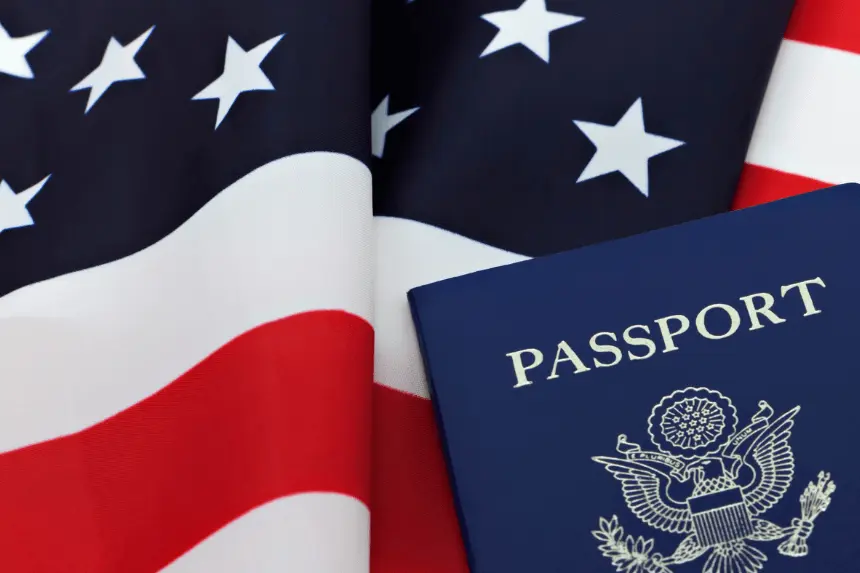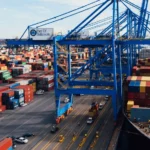American companies continue to reel in the shadows of a massive crackdown on immigration. Businesses that thrive on iman migrant workforce have started to suffer, bearing more and more work permits being cancelled and more and more promises of deportation. The consequences have already been felt by employers such as Victor Moran of a cleaning company based in Maryland, as employees flee because of fears and policy changes. The cramming down of immigration not only shocks lives but threatens the economic structures as well.
- What is the Reason that Businesses are Fearful of Losing Immigrant Workers?
- Which Programs Face a Threat of the Crackdown?
- What are the Enlarging Economic Effects?
- How Are Businesses Coping with Workforce Losses Amid the Immigration Crackdown?
- Did the Crackdown Cause People to go Hiding?
- Will the Policies be Reverted by Legal Challenges?
- Did Economic slowdowns as a result of immigration restrictions already exist in history?
- Can the gap be filled with American workers?
- Concluding Remarks: What is in the Future of the Immigration Crackdown?
What is the Reason that Businesses are Fearful of Losing Immigrant Workers?
The immigration workforce is an important component of the American workforce. Census records show that close to one out of every five employees in the United States was a foreigner last year, an all-time high. This figure has increased twofold since 1994, which is a testament to the sheer importance associated with the role of immigrants in specific spheres of life such as healthcare, hospitality, and domestic services. As Trump not only cracks down on immigration, even on individuals under temporary protective status (TPS), the employers are concerned about losing skilled and dependable employees whom they cannot easily replace. Here is the link to our article on Texas Chip Investment
Which Programs Face a Threat of the Crackdown?
Millions of immigrants, such as 73-year-old Justino Gomez, who came to the U.S.from El Salvador, have spent decades in the country working and living there under TPS protection that provides temporary work permits and protection against deportations. But what the present administration has done to terminate such programs in countries such as Venezuela and Haiti, and even El Salvador is creating much fear. Other immigrants, such as Gomez, are afraid that every time outside their home will lead to their arrest or deportation. As the ICE activity grows and workplace raids resume, the fear is in the air.
What are the Enlarging Economic Effects?
Economists caution against the long-term effects of limiting immigration. Giovanni Peri, a University of California Davis economist, ventures that immigration is an engine of economic growth, through providing labor and boosting consumer demand. A smaller labour force would inhibit the growth of business, drive up the cost of hiring people, and eventually escalate inflation. This is because the employers may experience increased wage demands and thus may transfer it to the consumers by increasing their prices. This transformation can be disastrous in industries already having difficulties in recruiting personnel. Here is the link to our article on China’s Growth Target
How Are Businesses Coping with Workforce Losses Amid the Immigration Crackdown?
Leaders of business circles in many industries are raising their voices. Adam Lambert, who leads Texas-based Cambridge Caregivers, says apart from his staff numbers being around 80% immigrant, the care providers are some of the lowest-paid caregivers. He is not seeking non-citizens, but it is immigrants who respond to the adverts concerning employment. He has already lost employees because of canceled licenses. Suppose that the undocumented caregivers leave the labor market, Lampert will be compelled to increase the staff payments and expenses, which will only decrease the affordability of senior care amongst family units. Equally, the Total Quality cleaning enterprise in the state of Maryland had to shed off 15 employees, and they are also afraid of losing hundreds.
Did the Crackdown Cause People to go Hiding?
The immigration crackdown would work to decrease the workforce indirectly, even without mass deportations. Fear can make many immigrants close down and cannot take up job opportunities or even apply for documents to prove their identity. This withdrawal constricts the labor supply, and it also kills the inclination of the population to community and economic activity. The mental turmoil is drastic, with individuals anthe d labor force being in constant fear of being detained, which poses a serious threat to personal well-being and employee motivation.
Will the Policies be Reverted by Legal Challenges?
Some of the practices in the administration are under a legal challenge. Civil rights organizations and labor unions are filing suits, especially regarding the termination of TPS protection. Nevertheless, the process of litigation may be long, and policy uncertainty is already hanging over the heads of immigrants and their new employers. Companies can only sit and pray that the current licenses will not be revoked and that new employees can be admitted.
Did Economic slowdowns as a result of immigration restrictions already exist in history?
A graphic contrast can be found in Japan. It has a sullen immigration policy and an aging demography, thus leading to stagnation in the economy. According to Professor Peri, the same problems will have to be expected in the U.S. should it follow suit. The country may end up with lower productivity and growth since industries may not be supported enough by the immigrant labor, and as the number of citizens increases. Immigration has always been one of the major drivers of wealth in America, and shutting it off could put America in a shutdown.
Can the gap be filled with American workers?
Although other people may tend to believe that American employees can substitute for immigrants, not everything is as simple as it may sound. Formation of employees whose skills are unique, such as healthcare workers, hospitality, or cleaning agency will consume a lot of time. Additionally, lots of citizens will not pursue or maintain jobs that are traditionally immigrant-dominated, particularly at prevailing wage rates. Most industries will remain short of time unless new immigration sources enter the workforce.
Concluding Remarks: What is in the Future of the Immigration Crackdown?
The immigration crackdown is more than a policy—it strikes at the heart of the U.S. economy. Businesses are bracing for labor shortages while immigrant communities live in fear. The nation must weigh the economic cost of losing migrant labor against the goals of enforcement. Without control, this shift could push the U.S. toward stagnation and inequality. A balanced approach is needed to maintain both security and economic vitality. Ultimately, the immigration crackdown will define America’s path toward or away from inclusive growth and prosperity.








